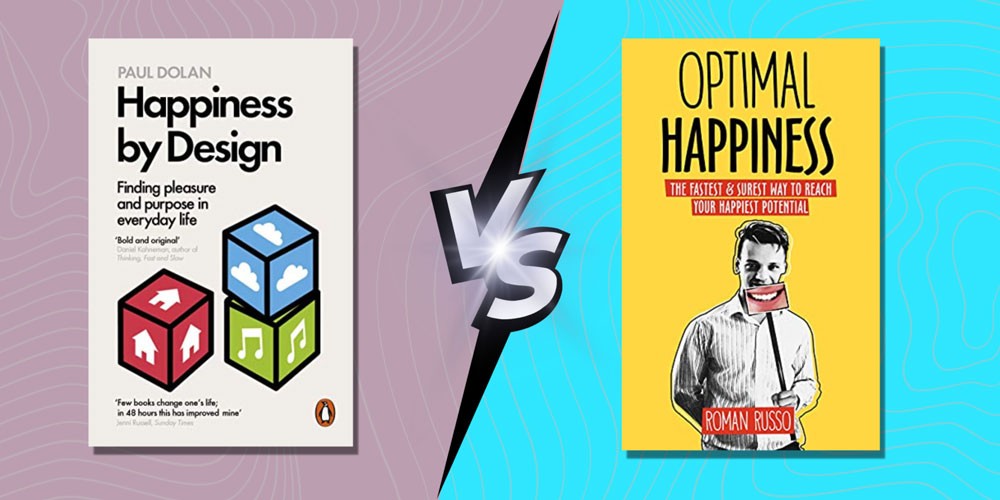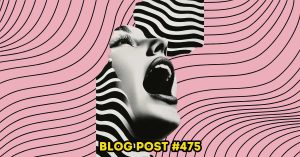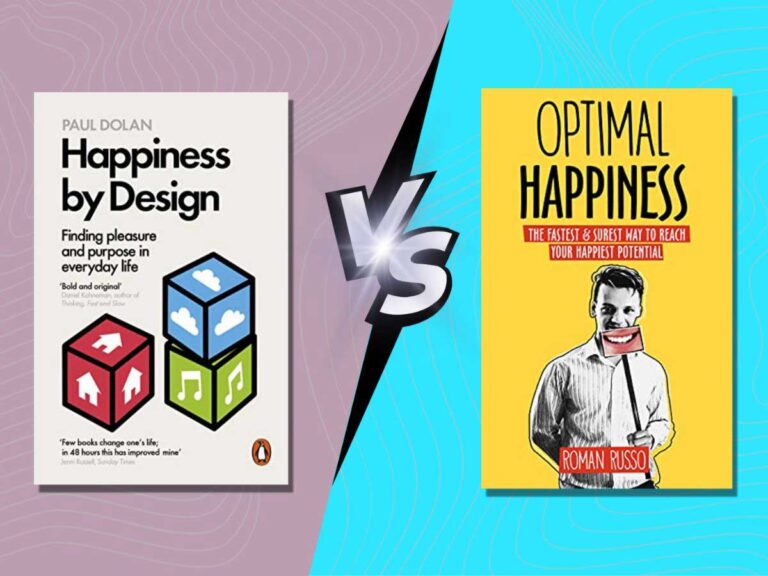
Today, we are reviewing Happiness by Design: Finding Pleasure and Purpose in Everyday Life, by Paul Dolan.
About Author
Paul Dolan is a researcher and practitioner of happiness. He is a professor of Behavioral Science in the Department in Psychological and Behavioral Science at the London School of Economics and Political Science. He conducted extensive research in measuring happiness and even worked with the Office of National Statistics (ONS) in the UK to create a questionnaire to measure well-being in the UK. Besides Happiness by Design, Dolan is the author of Happiness Ever After (which we will review in upcoming posts so stay tuned!).
Mail points
- Pleasure and Purpose: Happiness is composed of two elements: Pleasure and Purpose.
- Attention: Our happiness or unhappiness is a result of what we pay attention to.
- Measuring happiness: One of the biggest ongoing questions is how to measure our happiness for personal, academic, or practical purposes. Dolan presents few alternatives, such as:
- Day Reconstruction Method (DRM): Divide previous day into several episodes and rate them in accordance to their level of enjoyment.
- American Time Use Survey (ATUS): Like DRM it measures our time at and outside work, attaching enjoyment level to these practices.
- Happiness statistics: Dolan presents many interesting statistics about happiness, such as:
- Weather does not affect our happiness, unless we think about it (which we usually don’t).
- Biologically speaking, we want to have children, but they don’t really affect our happiness level after we have them.
- We are less likely to regret something we have done than never trying to do it.

What I learned
Perhaps, the most interesting points for me were the above mentioned statistics about happiness, such as:
- Taller people are happier (and everything else)
- Nature improved life satisfaction
- 3/4 of people in the EU are not satisfied with their work/life balance, etc.
I am planning to write an extensive post about happiness statistics in the near future, as I too have accumulated a lot of them, which is why it’s time to publish them.
Favorite quote:
“Lost happiness is lost forever.” – Paul Dolan
Sacrificing current happiness does not guarantee future happiness.
What I disagree with
Above everything else, I disagree with Dolan’s definition of happiness. As we have seen above, he defines happiness as a combination of two factors: Pleasure and Purpose. In turn, I define happiness as a composition of 6 components, of which 1 of my components is the 6 Pillars of Happiness, of which 1 is Purpose. Furthermore, Dolan states that happiness is pleasure, which is a short-term pursuit, which contradicts my perspective which states that happiness is a long-term emotion (see full happiness definition article here).
As for the link between attention and happiness, I’m not sure how useful or applicable this piece of research is for someone who is trying to be happier. Yes, pay attention to things that make you happier and don’t pay attention to things you dislike, but in practice I imagine it is hard to do.
Easy to read?: Yes
Overall grade of the book: I’d grade Happiness by Design as 4 out of 5 points. I like the book because it was easy and interesting to read, and it was nice to review some of the happiness statistics. However, once again, I was not sure how applicable was the advice of Paul Dolan for someone who wants to change their life for the happier.














